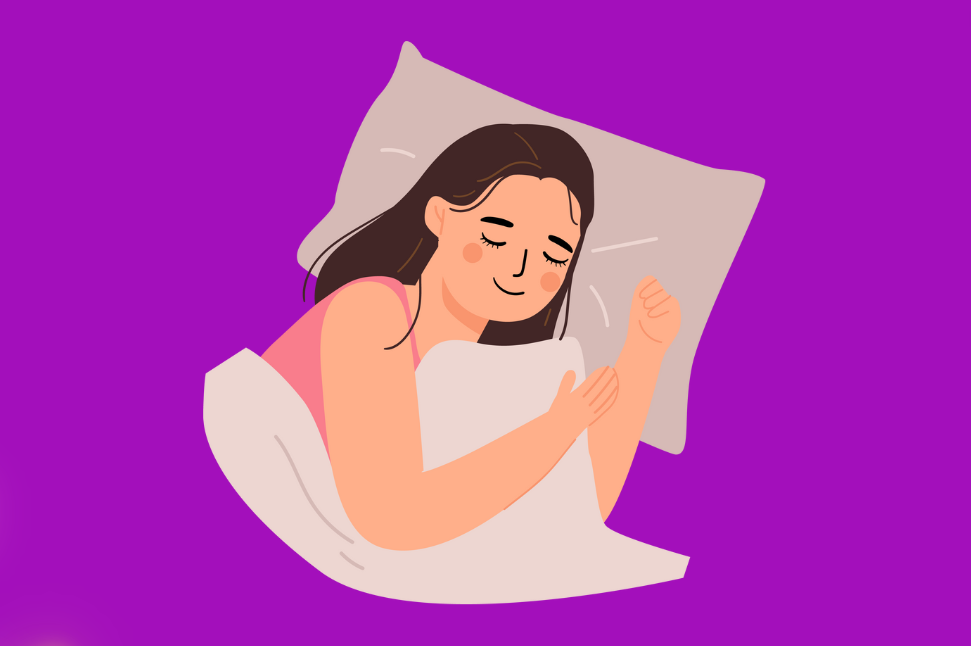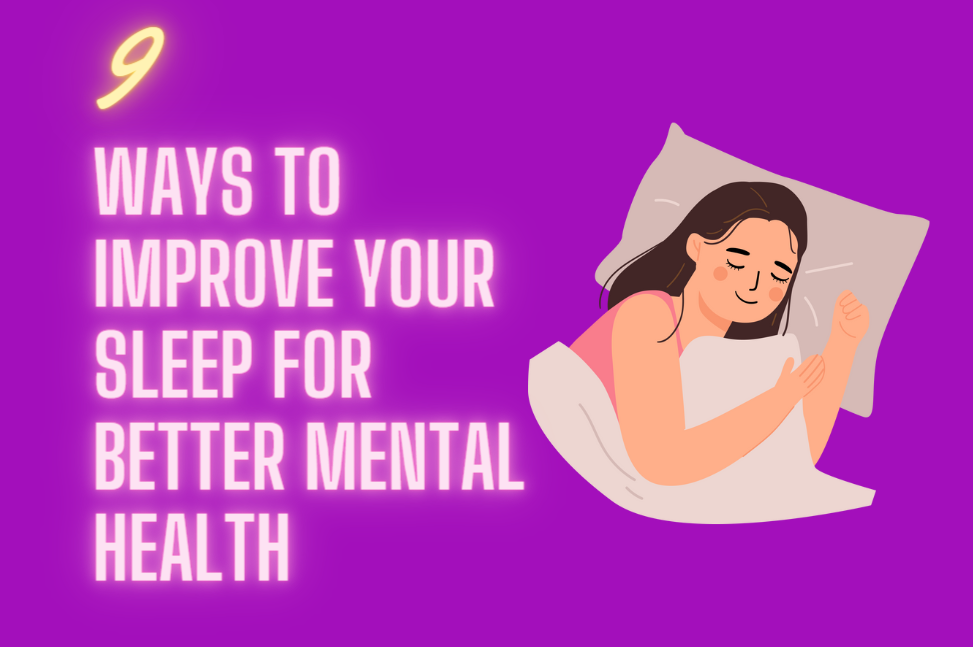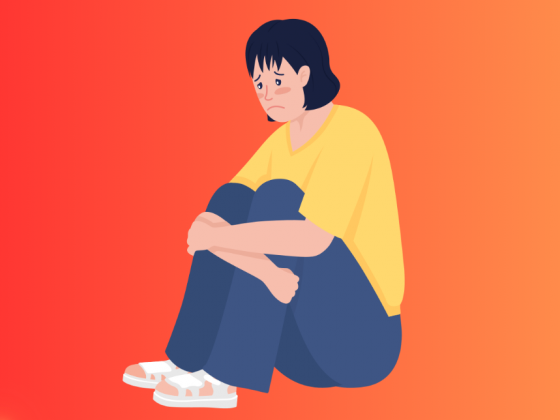Introduction
You’re tossing and turning, thoughts racing at bedtime. It’s affecting your mood, productivity, and overall health. But there’s good news—you can improve your sleep and boost your mental well-being.
This guide offers nine practical tips to help you slumber like a dream. From setting a sleep schedule to tweaking your diet, we’ve got you covered.
Say goodbye to sleepless nights and hello to a refreshed, healthier you. Let’s get started!
Establish a Sleep Schedule
To enhance your mental health through better sleep, it’s essential to stick to a consistent sleep schedule, even on weekends. Your body thrives on routine, and by going to bed and waking up at the same time each day, you’re helping to set your internal clock. This regularity can lead to better sleep quality and duration, which in turn, can boost your mood and overall mental well-being.
You might be tempted to sleep in on your days off, but disrupting your sleep pattern can throw off your body’s rhythm. If you’re struggling to maintain a consistent schedule, start by adjusting your bedtime in 15-minute increments. It’s also helpful to create a relaxing bedtime routine that signals to your body it’s time to wind down. This could include reading, meditating, or taking a warm bath.
Design a Restful Environment
Creating a sleep sanctuary can significantly enhance the benefits of your established sleep schedule, supporting your mental health with a space designed for optimal rest. Think of your bedroom as a retreat from the day’s stressors. Start by focusing on your bed – invest in a comfortable mattress and pillows that suit your sleeping style. Soft, breathable bedding can make a world of difference, too.
Dim the lights as your bedtime approaches. Use blackout curtains to block out any external light and consider a sleep mask if you can’t control outdoor lighting. Keep the room temperature cool; between 60-67 degrees Fahrenheit is ideal for most people. You’ll find it easier to drift off when you’re not too hot or too cold.
Be mindful of noise levels as well. Earplugs can help if you can’t avoid background noise, or you might prefer the consistent hum of a white noise machine. Keep electronics out of the bedroom if possible – the blue light from screens can disrupt your sleep cycle.
Lastly, add personal touches that signal relaxation to you, whether that’s a specific scent from a diffuser or the feel of a plush rug underfoot as you climb into bed. Your bedroom should be a personalized haven that invites restful sleep each night.
Limit Evening Screen Time
Why should you consider powering down your devices well before bedtime? It’s simple: the blue light emitted from your screens can significantly hinder your ability to fall asleep. This type of light tricks your brain into thinking it’s still daytime, disrupting your natural sleep-wake cycle. As a result, your body’s production of melatonin, the hormone responsible for sleep, is suppressed, making it harder for you to drift off.
You’ve probably experienced the temptation to check your email or scroll through social media before turning in. However, this not only exposes you to blue light, it also keeps your mind engaged and alert when you should be winding down. The constant stream of information can lead to increased stress and anxiety, which are notorious enemies of good sleep.
To combat this, set a screen curfew for yourself, ideally an hour before bed. Spend this time unwinding with a book, meditating, or practicing gentle stretches. These activities promote relaxation and signal to your body that it’s time to sleep. By making this change, you’ll likely notice improvements in both the quality of your sleep and your overall mental health.
Practice Relaxation Techniques
As you seek to enhance your sleep, consider the tranquility that relaxation techniques can bring to your bedtime routine.
Engaging in mindfulness meditation can center your thoughts and calm your mind, setting a peaceful stage for sleep.
Meanwhile, deep breathing exercises and progressive muscle relaxation are potent tools to release physical tension and invite restfulness.
Mindfulness Meditation Benefits
Incorporating mindfulness meditation into your nightly routine can significantly enhance the quality of your sleep and, by extension, your mental health. By focusing on the present moment and acknowledging your thoughts without judgment, you’re training your mind to settle down. This mental shift can reduce stress, lower anxiety, and pave the way for a more restful night.
As you practice mindfulness, you’ll likely notice a decrease in racing thoughts that often hinder sleep. With consistent meditation, you’ll foster a state of relaxation that not only prepares you for sleep but also improves your overall well-being.
Deep Breathing Exercises
Building on your mindfulness routine, deep breathing exercises can further calm your mind and prepare your body for a rejuvenating sleep. These techniques are simple yet powerful.
Start by finding a comfortable position, either sitting or lying down. Close your eyes and take a slow, deep breath through your nose, allowing your stomach to rise. Hold this breath for a few seconds, then exhale slowly through your mouth, letting any tension melt away. Repeat this process several times, focusing solely on your breathing and the sensation of relaxation spreading through your body.
As you practice these exercises regularly, you’ll notice it becomes easier to slip into a peaceful state before bedtime, helping you drift off faster and enjoy a deeper sleep.
Progressive Muscle Relaxation
Following on from deep breathing, you can further enhance your sleep with Progressive Muscle Relaxation, a technique where you tense and then relax each muscle group, promoting a deeper sense of physical and mental calm before bed.
Start by finding a comfortable position. Then, working from your toes upward, systematically tense each muscle group for about five seconds and release it. Inhale as you tighten the muscles, and exhale as you let the tension go. Pay attention to the contrast between tension and relaxation.
You’ll likely notice a warmth and heaviness in the relaxed muscles, a sign you’re on the right track. It’s a simple yet effective method to prepare your body for a restful night’s sleep.
Optimize Your Diet for Sleep
Your sleep-enhancing diet should include foods rich in tryptophan, magnesium, and melatonin, while avoiding heavy meals and caffeine before bedtime.
Tryptophan, an amino acid found in turkey, eggs, and cheese, is a precursor to serotonin, which your body converts into the sleep-regulating hormone melatonin.
Magnesium, present in almonds, spinach, and pumpkin seeds, can help de-stress your muscles and mind, leading to better sleep quality.
You’ll also want to eat foods that naturally contain melatonin, like cherries and walnuts, to regulate your sleep-wake cycle. However, it’s not just about what you eat, but also when you eat.
Try to finish your last meal at least two to three hours before you hit the sack, giving your body ample time to digest.
Beware of caffeine and nicotine; these stimulants can keep you awake and should be avoided in the late afternoon and evening. And while alcohol might make you feel drowsy at first, it’s likely to disrupt your sleep cycle later in the night.
Stick to water or herbal teas like chamomile or valerian root in the evening. These drinks can be soothing and help signal to your body that it’s time to wind down.
Exercise Regularly, But Wisely
In addition to optimizing your diet, engaging in regular exercise can significantly enhance your sleep quality and mental health. It’s not just about tiring yourself out; it’s about creating a balance that promotes restful sleep. When you exercise, you’re not only expending energy but also helping to regulate your body’s internal clock, or circadian rhythm, which tells you when it’s time to sleep.
However, timing is crucial. You’ve got to be smart about when you work out. Exercising too close to bedtime might leave you too energized to fall asleep. Aim to finish any vigorous workouts at least three hours before you hit the hay. That way, your body has enough time to wind down.
Don’t worry if you’re not a gym buff; moderate activities like walking or yoga can be just as effective, especially if they’re done consistently. The goal is to get your body moving during the day so that come nighttime, it’s ready to rest.
Manage Stress Levels
High stress can wreak havoc on your sleep, leaving you tossing and turning through the night. To keep stress in check, you’ll benefit from incorporating deep breathing, establishing regular exercise habits, and practicing mindfulness meditation.
These strategies don’t just reduce stress; they also pave the way for deeper, more restorative sleep.
Practice Deep Breathing
Many people find that incorporating deep breathing exercises into their nightly routine significantly reduces stress and promotes more restful sleep. When you’re lying in bed, try focusing on your breath. Take slow, deep inhales through your nose, allowing your stomach to rise, and then exhale gently through your mouth. This simple technique can help activate your body’s relaxation response, countering the stress that often keeps you awake.
By making deep breathing a habit, you’re telling your nervous system it’s time to wind down. Stick with it, and you’ll likely notice a shift in your sleep quality.
Regular Exercise Habits
Establishing a consistent exercise routine can significantly lower your stress levels and enhance the quality of your sleep. When you work out, your body releases endorphins, those feel-good hormones that act like natural painkillers. They not only improve your mood but also promote more restful sleep.
You don’t have to hit the gym hard to reap these benefits. Even moderate activities like brisk walking, cycling, or yoga can make a huge difference. Aim for at least 30 minutes of exercise most days of the week. Remember, it’s important to finish exercising several hours before bedtime so you’re not too energized to fall asleep.
Mindfulness Meditation Techniques
Incorporating mindfulness meditation into your nightly routine can significantly reduce your stress and improve your sleep quality. Start by finding a quiet spot where you won’t be disturbed. Sit or lie down comfortably, close your eyes, and focus on your breathing. Inhale deeply, then exhale slowly, paying attention to the rise and fall of your chest. If your mind wanders, gently guide it back to your breath without judgment.
Practicing this for just a few minutes each night can help clear your mind of the day’s worries. It’s not about achieving a state of emptiness but about being present in the moment. Over time, you’ll likely notice a calmer mind and a more restful sleep, as mindfulness meditation helps you manage stress levels effectively.
Evaluate Your Sleep Gear
To enhance your sleep quality and mental health, start by assessing the comfort and support of your mattress and pillows. A good mattress should align with your body’s natural posture, supporting the spine’s curvature while cushioning the hips, shoulders, and other pressure points. If you’re waking up sore or stiff, it’s a telltale sign that your mattress may be past its prime.
Pillows are just as pivotal; they should cradle your neck and head, maintaining a neutral alignment with your spine. Remember, comfort is subjective, so what works for others mightn’t suit you.
Next, consider your sheets and blankets. Look for breathable fabrics that help regulate your body temperature throughout the night. Overheating can disrupt your sleep, so it’s worth investing in materials that keep you cool.
Don’t forget to scrutinize your sleepwear, too. Choose loose-fitting, soft fabrics that don’t restrict movement or cause irritation. Your pajamas can significantly impact your comfort and, consequently, your sleep quality.
Lastly, check for any external factors that might affect your sleep environment. Light pollution, noise, or even an old, lumpy mattress topper can be culprits. Adjust these elements to ensure your sleep gear is conducive to a restful night.
Consider Professional Help
While you’re working on improving your sleep environment, don’t hesitate to seek a sleep specialist’s guidance if persistent sleep issues are affecting your mental health. Sometimes, despite your best efforts, those elusive z’s won’t come easily, and it’s not a sign of weakness to ask for help. A trained professional can offer personalized advice and treatment options that you mightn’t have considered or that aren’t widely known.
Remember, chronic insomnia or other sleep disorders can be symptoms of deeper health issues, such as anxiety, depression, or sleep apnea. A specialist can help diagnose these conditions through methods like sleep studies, and they’ll work with you to develop a targeted approach to tackle your sleep challenges.
If therapy is recommended, don’t shy away. Cognitive Behavioral Therapy for Insomnia (CBT-I) is a proven method to improve sleep by changing the thoughts and behaviors that are preventing you from sleeping well. It’s an investment in your overall well-being.
Lastly, keep in mind that medication may also be an option, but it’s typically considered a short-term solution. Your goal should be sustainable sleep habits that support your mental health for the long haul. Professional guidance can steer you toward that horizon.
Frequently Asked Questions
How Does Sleep Affect My Immune System, and Can Better Sleep Help Reduce My Chances of Getting Sick?
Sleep plays a vital role in maintaining your immune system. When you get quality sleep, your body produces infection-fighting substances. It means you’re less likely to catch colds or other illnesses.
Improving your sleep can significantly reduce your chances of getting sick by ensuring your immune system functions at its best. So, prioritizing good sleep isn’t just about feeling rested—it’s a key element in keeping you healthy.
Are There Any Genetic Factors That Influence My Sleep Patterns, and Can They Be Modified for Better Sleep?
Yes, your sleep patterns are partly influenced by genetics, including your natural sleep-wake cycles and predisposition to certain sleep disorders. While you can’t change your DNA, you’ve got some control.
You can adjust your sleep environment and habits—like sticking to a regular sleep schedule and avoiding screens before bed—to promote better rest.
It’s not foolproof, but tweaking these factors can help you work with your genetics for more restful nights.
How Do Certain Medications Impact Sleep Quality, and What Should I Discuss With My Healthcare Provider About Them?
Certain medications can disrupt your sleep or enhance its quality. You should talk to your healthcare provider about the meds you’re taking and how they might be affecting your rest. They can adjust dosages or prescribe alternatives that won’t interfere with your sleep.
Always be open about any sleep changes you notice after starting new medications, so they can tailor a regimen that ensures you get the rest you need.
Can Sleep Improvement Have an Effect on Chronic Pain Management?
Absolutely, better sleep can help you manage chronic pain more effectively. When you’re well-rested, your body’s pain threshold often increases, making discomfort more tolerable.
Don’t underestimate the power of quality sleep; it can make a significant difference in how you perceive and cope with pain.
Be sure to talk to your doctor about strategies to improve your sleep pattern, as it’s a crucial part of your overall pain management plan.
Are There Any Specific Sleep-Related Concerns for Pregnant Women That Can Influence Mental Health?
Yes, as a pregnant woman, you’re facing unique sleep-related challenges that can impact your mental health.
Hormonal changes, discomfort, and anxiety may disrupt your rest.
It’s crucial you address these issues; poor sleep quality during pregnancy is linked to postpartum depression.
Consider relaxation techniques and a comfortable sleeping environment.
Remember, managing your sleep now is important for both your wellbeing and your baby’s health.
Don’t hesitate to seek advice from your healthcare provider.
Conclusion
You’ve got the tools to boost your sleep and, in turn, your mental health. Stick to a schedule, create a calming bedroom, and cut back on late-night screens.
Relax before bed, eat sleep-friendly foods, and exercise at the right times. Keep stress in check, upgrade your mattress and pillows if needed, and don’t hesitate to seek professional advice.
Prioritize your sleep, and your mind will thank you. Sweet dreams!





